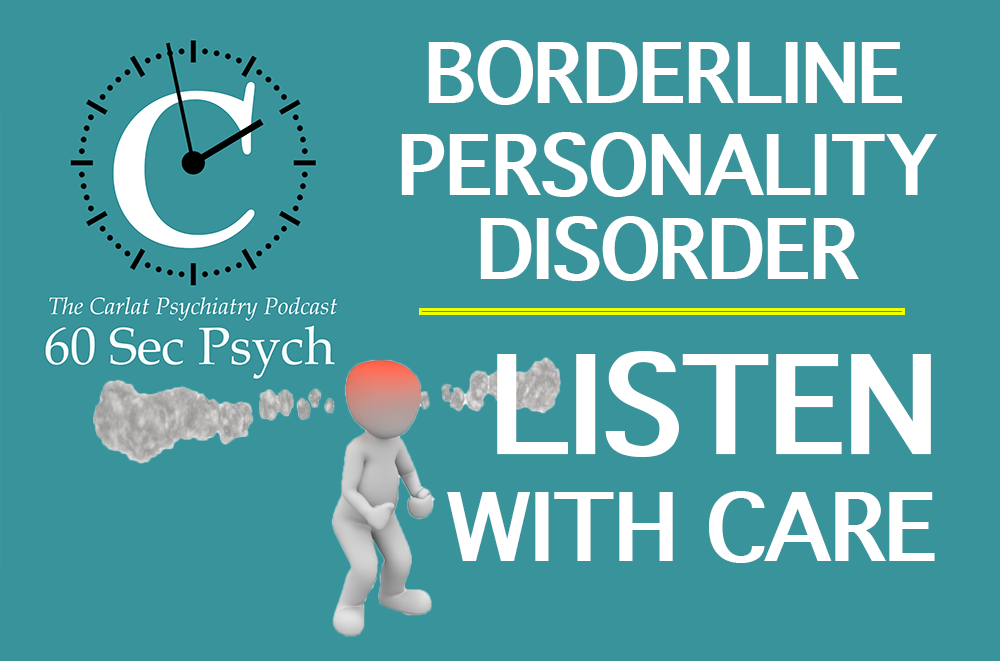Dialectical Behavior Therapy ─ DBT ─ has become the gold standard for borderline personality disorder, and other therapies are starting to go head-to-head with DBT in clinical trials. We reviewed one that fared well, Good Psychiatric Management, in our Summer issue and a new one just came out of Australia in a study by Carla J Walton and colleagues from University of Newcastle [Link]. It tested Conversational Therapy, which uses the careful listening and the therapeutic relationship as the fulcrum of change.
Date Published: 8/5/2020
Duration: 2 minutes, 24 seconds
Transcript:
Dialectical Behavior Therapy ─ DBT ─ has become the gold standard for borderline personality disorder, and other therapies are starting to go head-to-head with DBT in clinical trials. We reviewed one that fared well, Good Psychiatric Management, in our Summer issue and a new one just came out of Australia in a study by Carla J Walton and colleagues from University of Newcastle. It tested Conversational Therapy, which uses the careful listening and the therapeutic relationship as the fulcrum of change.
Over 14 months, 162 patients with borderline were randomized to DBT or conversational therapy. Both therapies are twice a week ─ conversational involves 2 1:1 session and DBT an individual and a group session. At the end, both improved self-injury to a comparable degree, and DBT had greater effect on depression, possibly because it employs more behavioral activation. Both had similar effects on core borderline symptoms.
So what is Conversational therapy? It’s sometimes called Psychodynamic-Interpersonal Therapy. The therapist listens empathically to the patient, reflecting back what they hear with statements rather than questions and mutual ('I' and 'We') language. The goal is to help the patient develop a coherent narrative and healthy sense of self, and to look for emotional misunderstandings in the room and repair them as they happen, so that the patient learns from their relationship with the therapist and can apply that learning to patterns in their own life. Conversational therapy was developed by psychiatrists Robert Hobson and Russell Meares and Meares wrote a guide to it in 2012.
The bottom line: Tried and true methods of psychotherapy, like careful empathic listening and actively repairing tears in the therapeutic relationship, go a long way in Borderline Personality Disorder.
Got feedback? Take the podcast survey.


_-The-Breakthrough-Antipsychotic-That-Could-Change-Everything.jpg?1729528747)



